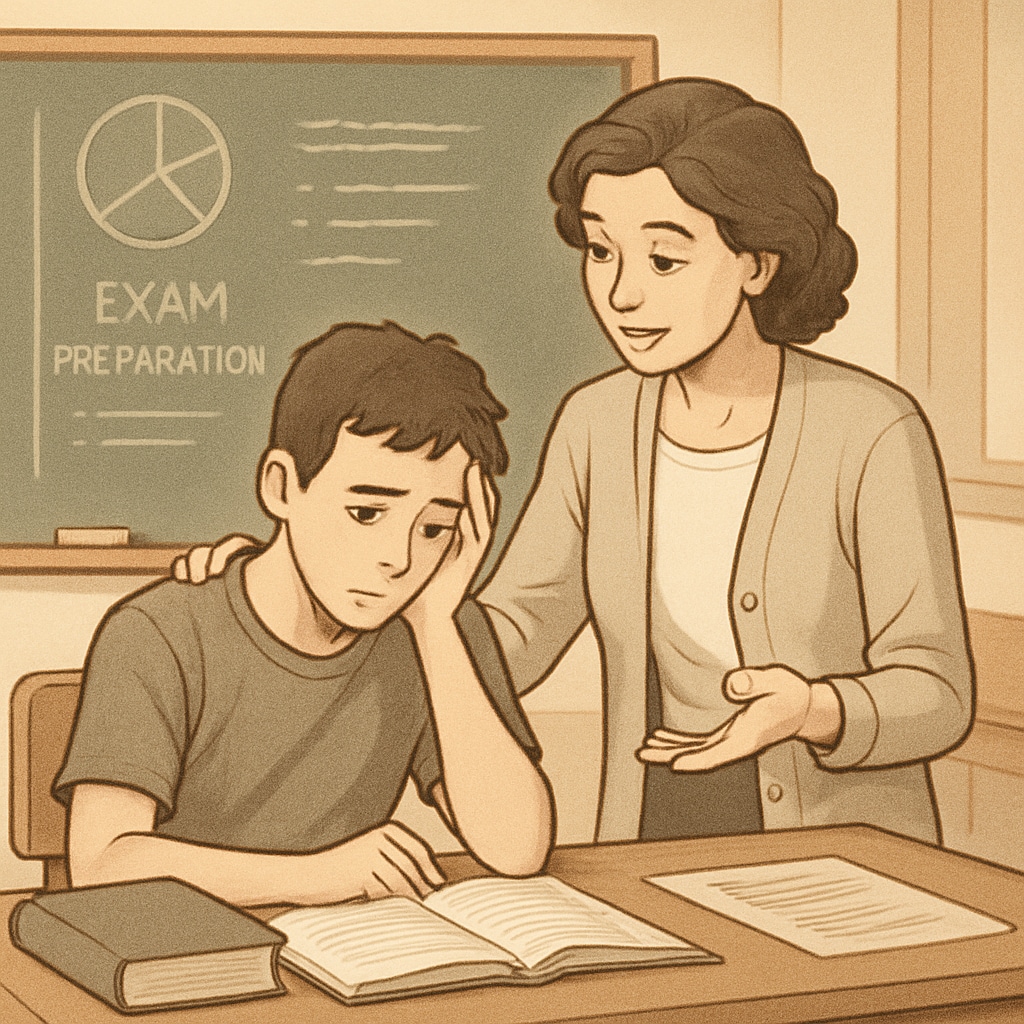Math anxiety, multi-choice questions, and exam stress can feel like insurmountable hurdles for many students. These challenges are particularly evident during high-pressure tests, where fear and uncertainty cloud the ability to reason clearly. This article explores the psychological mechanisms behind math anxiety and provides actionable strategies to help students break free from these constraints and approach exams with confidence.

Understanding Math Anxiety and Its Impact
Math anxiety is a psychological condition marked by feelings of tension, worry, or fear when dealing with mathematical tasks. It’s not just a dislike for math—it’s a genuine mental roadblock that can impair problem-solving abilities. Multi-choice questions, in particular, exacerbate this anxiety due to their perceived complexity and the pressure to choose correctly among multiple options.
Studies from Britannica reveal that anxiety triggers a “fight or flight” response, which can hinder cognitive processes essential for solving complex problems. For students, this can result in second-guessing answers, skipping questions, or even blanking out during exams.
A Real-Life Case Study: The 17-Year-Old Transfer Student
Let’s look at the story of Emily, a 17-year-old transfer student who struggled with severe math anxiety after joining a new school. Emily’s first math exam featured a section of multi-choice questions, which left her paralyzed with indecision. She found herself overthinking every option, fearing that one wrong answer would negate her efforts.
Through a combination of cognitive restructuring and exam strategies, Emily managed to overcome her anxiety. Her journey highlights the importance of understanding math anxiety as a psychological challenge rather than a reflection of intelligence or ability.

Strategies to Combat Multi-Choice Question Anxiety
To address math anxiety and excel in multi-choice questions, students can adopt the following strategies:
- Practice Mindfulness: Techniques such as deep breathing or meditation can help calm the nervous system and promote focused thinking.
- Break Down Questions: Instead of viewing the entire problem, focus on analyzing one part at a time to reduce overwhelm.
- Use Process of Elimination: Narrow down options by eliminating clearly incorrect answers, which can improve confidence and focus.
- Simulate Exam Conditions: Practice with timed multi-choice tests to familiarize yourself with the format and reduce surprises on exam day.
- Seek Support: Teachers, tutors, and counselors can provide techniques and encouragement to overcome anxiety.
Additionally, research from Wikipedia emphasizes the role of consistent practice in building mathematical resilience. The more students engage with math problems, the less intimidating they become.
Rebuilding Confidence: The Psychological Journey
Overcoming math anxiety is not just about mastering formulas—it’s about shifting how students perceive challenges. Cognitive restructuring, a technique often employed in psychology, encourages individuals to replace negative thoughts with empowering ones. For instance, instead of thinking, “I’ll never get this right,” students can reframe their mindset to, “I’ll learn from every attempt I make.”
Emily’s success came through this process. She began journaling her thoughts about math and identifying patterns of negativity. Over time, she replaced these with affirmations and realistic expectations, which allowed her to approach exams with a clear and focused mind.
Conclusion: Turning Fear Into Mastery
Math anxiety, multi-choice questions, and exam stress don’t have to define a student’s academic journey. By understanding the root causes of anxiety and implementing targeted strategies, students can transform fear into mastery. Whether through mindfulness, structured practice, or cognitive techniques, the path to confidence is achievable for anyone willing to take the first step.
As Emily’s experience demonstrates, overcoming math anxiety is not just about achieving better scores—it’s about reclaiming your ability to think clearly, act decisively, and believe in your own potential.


